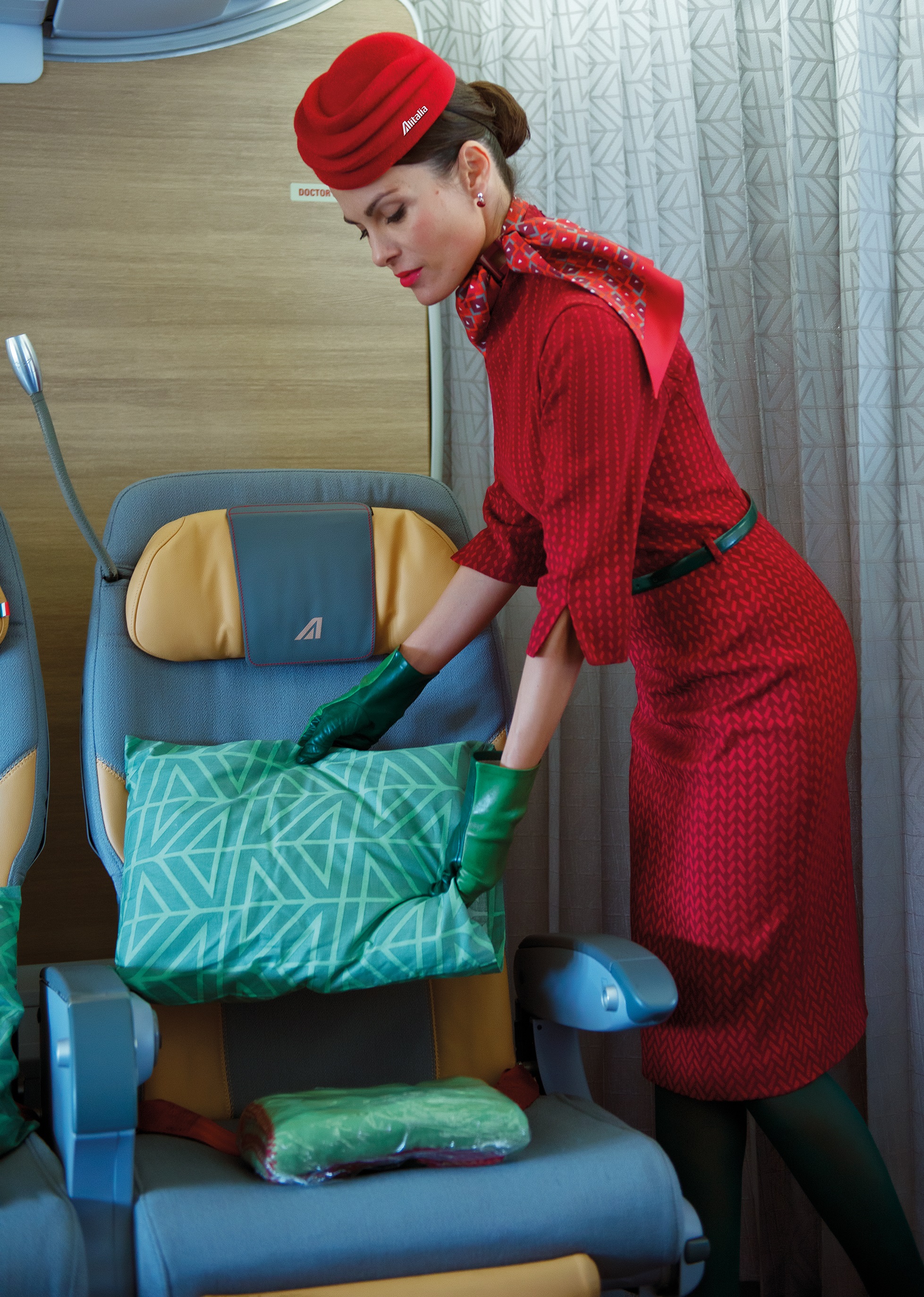|
Alitalias Board of Directors has approved the
airlines turnaround business plan which includes a range of
radical measures across the whole of the company to stabilise it
and secure its long-term sustainability.
The plans funding by the companys shareholders
is subject to Alitalias trade unions agreeing to a new collective
works agreement and headcount-related measures.
Airline management will soon present the
board-approved plan to the Italian government and then meet with
trade unions to explain the details of the business plan,
headcount-related measures and resume talks on a new collective
labour agreement.
Alitalia said it will reduce costs by 1 billion
in the first three years of the plan by 2019 with reductions in
operating costs and manpower. Alitalia will increase revenues, in
the same timeframe to 2019, by 30% from 2.9 billion to
3.7 billion.
These financial performance indicators are
judged to be realistic and achievable by independent advisors and
the projected figures would turn Alitalia into a profitable
business by 2019.

The business plan actions are supported by four
pillars of change; a recalibrated business model, costs
reductions and enhanced productivity, optimisation of network and
partnership, and develop commercial initiatives by utilising
technology investments to drive revenue.
Cramer Ball, Alitalia CEO, said, With the
approval today by the Board of Directors of the second phase of
our business plan we can now accelerate our actions towards
turning around Alitalia. We re-built our brand in the first phase and
invested heavily in staff training and technology so we are now
able to move ahead and implement wide-ranging changes. The aviation industry is ferociously competitive
and never stands still. Only through radical change will
Alitalias fortunes be turned around. We must transform this business into a dynamic
entity that is attractive to customers who have plenty of choice
for their air travel needs. Consumers buying habits have been shaped by how
low cost carriers sell their products. I am confident that the
next phase of the industrial plan will represent the step forward
needed, provided that all interested parties play their part. The radical and necessary measures across the
entire airline will secure our long-term sustainability which will
only materialise if the airline is the right size, the right shape
and with the right productivity and cost base. We must do this, especially in our short and
medium haul business in order to provide a platform to grow our
profitable long-haul business further in the future. This is a critical aspect because most of our
customers fly on our short and medium-haul planes to connect onto
our long-haul services. If we cant compete throughout Italy and Europe
against low-cost carriers then we lose air travellers that connect
onto intercontinental flights. Put simply, there is absolutely no
alternative.
Details of the four pillars of Alitalias second
phase of its business plan are:
Recalibrated Business Model
Narrow body planes for the short and medium haul
will see an increase in utilisation, extra seats are being fitted,
buy-on-board and ancillaries services and more attractive air
fares will be introduced in a concerted drive towards increasing
revenue while stripping out existing costs.
Mr Ball said: In the short and medium-haul
markets domestic flying in Italy and throughout Europe
passengers will be able to personalise their journey. We will
simplify air fares and offer customers the opportunity to purchase
products such as seat selection, checked-in luggage and priority
boarding throughout the booking process, and all the way up to the
airport gate. On flights that are four hours or less we will
introduce the buy-on-board concept that is not only commonplace
with low-cost carriers but is happening more and more at
traditional, network airlines. We will offer our customers a
choice of made in Italy hot and cold food, snacks and drinks at
competitive prices.
Alitalias wide-body intercontinental flights
will be based on a full-service model and maintain an intense
focus on costs and efficiency. In addition to Alitalias A330
fleet, the carriers Boeing 777s will be fitted with new in-flight
entertainment and Wi-Fi. Alitalias new flagship aircraft, a 382
seater Boeing 777-300ER, will join the long-haul fleet in August
2017.
Cost Reductions and Increased
Productivity
Low cost carriers currently represent 47% of the Italian air travel market, the highest market
penetration in Europe.
Talks are already underway with a number of the
airlines suppliers to renegotiate contracts and drive down costs
to levels comparable with the competition. Target companies are in
sectors such as aircraft leasing, global distribution, in-flight
catering, airport ground handling and airports themselves.
Network and Partnership
Optimisation
Alitalia will rebalance its fleet of aircraft by
2018, reducing its narrow-body fleet by 20. The airline will
increase aircraft utilisation with a particular focus on short and
medium-haul aircraft. Alitalia plans to grow its number of flights
from Italy to the Americas one of its most underserved markets
and build its presence at Milan Linate, Sicily and Sardinia. The
airline will re-evaluate its transatlantic options to try and fly
more often on existing routes and to add new cities in the
Americas.
New Commercial Initiatives by
Utilising Technology Investments to Drive Revenue
Alitalia has invested 200 million in the last
two years on new technology and it will now use the investment to
improve efficiency and productivity to drive further revenue
opportunities.
Mr Ball said: Our investment in technology will
enable us to develop new sales channels and this will contribute
to increasing our revenue by 30% by 2019. Consumers use
tablet devices and mobile phones more than ever to manage their
travel experiences, and we will make it easier for them to
interact with the airline. About 20% of our customers
already use on-line ways to book their flights and we aim to
increase that figure to more than 50%. Our customers will
continue to notice our enhancements and realise that Alitalia has
become a different airline from the past.
|
Headlines: |
|
See latest
HD Video
Interviews,
Podcasts
and other
news regarding:
Alitalia,
Technology.
|
